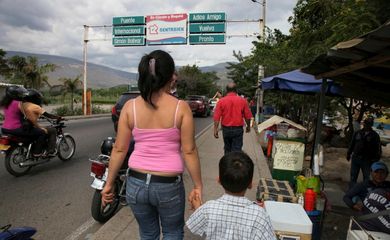Brazil grants citizenship to two stateless sisters
For the first time in history, the Brazilian government granted citizenship to individuals recognized as stateless. Sisters Maha Mamo and Souad Mamo were naturalized Brazilian in Geneva, Switzerland, during a United Nations High Commissioner for Refugees (UNHCR) meeting.

The document making the decision official was delivered by Bernardo Lafarté, coordinator-general of the National Committee for Refugees, and Ambassador Maria Nazareth Farani Azevêdo, Brazil’s permanent representative with the UN.
In June, the two sisters had their statelessness confirmed by the Brazilian government as part of the first case under Brazil’s New Migration Law, brought into force last year. Before the change, the term “stateless” did not exist in Brazilian law.
Brazilian Justice Minister Torquato Jardim described the move as a historic moment for the country. “By granting Brazilian citizenship to Maha and Souad, Brazil underlines its tradition of sheltering vulnerable and underserved people, and provides the world with a role model of what was and will always be a country committed with the eradication of statelessness,” he said during the ceremony.
Statelessness
Born in Lebanon, the two sisters could not be registered in the country, as newborns are required to be the children of Lebanese parents in order to be Lebanese nationals. Their parents, from Syria, were also unable to register the children in Syria, where newborns can only be registered by officially married parents, which was not the case.
Some 10 million people across the world have no nationality, figures from UNHCR reveal. As no birth certificate and other documents are issued, stateless people are often unable to go to school, receive medical care, get a job, open a bank account, buy a house, or get married.
The new Migration Law in Brazil outlines a complex procedure for the recognition of refugees, but made it easier for conventional immigrants from other countries to come to Brazil, as they can have an entry visa as well as regular working records issued. This has been the case with Venezuelans, who have come to Brazil in large amounts over the last few years.
*Pedro Rafael Vilela contributed to this article.




